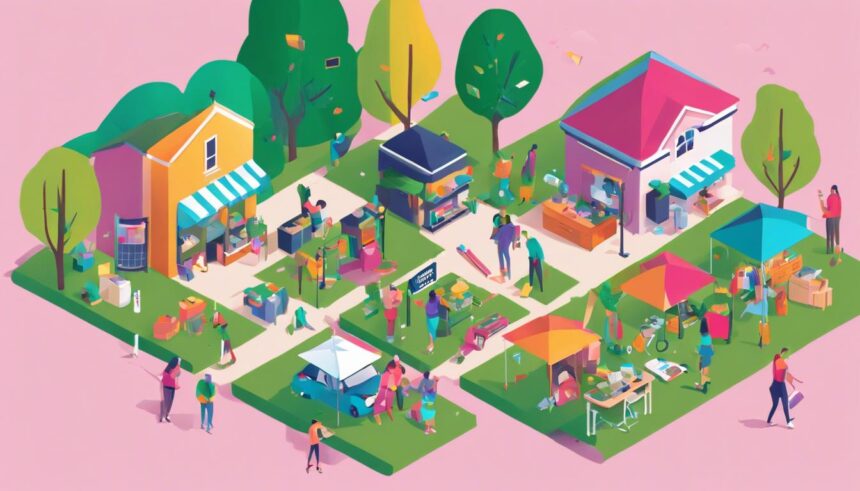As spring cleaning season approaches, the tradition of decluttering is taking on new life with platforms like Nextdoor, where the circular economy thrives and community spirit is redefined.
In a digital age where social connections often transcend geographical boundaries, community-focused platforms like Nextdoor are redefining what it means to be a neighbour. The latest insights from Nextdoor, released March 19, 2024, shine a light on a timeless American tradition that’s getting a modern-day makeover: spring cleaning. It seems that the annual ritual of tidying and decluttering our living spaces is not just about creating a more pleasant home environment; it’s also emerging as a potent avenue for participating in the circular economy and generating an income.
According to the Nextdoor survey, an overwhelming 86% of Americans are gearing up to embrace the spring cleaning spirit in 2024, with the figure even slightly higher at 91% among Nextdoor users. This reveals an almost universal appeal of spring cleaning, transcending mere household chore to become a seasonal ritual embraced across the country. The commitment to this task is significant, with a majority ready to dedicate at least a full day, and 18% preparing to devote a week or more to deep cleaning efforts. The drive behind this considerable investment of time? A desire to declutter, cited by 79% of respondents as their main motivation. Interestingly, this deep clean isn’t just about the physical space; 94% report feeling in a better mood post-clean, underscoring the psychological benefits of a tidy environment.
Yet, it’s the economic implications of this annual purge that are particularly striking. With the cost of living on a steady ascent throughout 2023, Nextdoor’s For Sale & Free marketplace has seen a surge in activity, becoming a vibrant hub for buying and selling within local communities. Remarkably, over 3.8 million items found new homes through the platform in the past year alone, indicating a vast and varied market for second-hand goods. These transactions ranged dramatically in value, with approximately 49,000 items, mostly automobiles, being sold for over $5,000. The data also revealed a sweet spot for sales in the $50-$100 range, suggesting a robust market for everyday items. Furthermore, a significant 34% of items were given away for free, illustrating a strong community spirit and a commitment to reducing waste.
Chris Klotzbach, Head of Product and Content Marketing at Nextdoor, highlighted this evolving nature of spring cleaning, noting that it’s not just about cleaning anymore but has become a means of passive income. The spike in Marketplace listings during the spring months further confirms that Americans are not just decluttering but smartly navigating the circular economy, making and saving money in the process.
This shift towards monetizing clutter through platforms like Nextdoor’s For Sale & Free marketplace reflects a broader trend in how we perceive ownership and consumption. In a world increasingly conscious of sustainability and economic resilience, the practice of buying and selling second-hand goods encourages a more thoughtful approach to what we have and what we truly need.
The resurgence of community-based economies, facilitated by technology and platforms like Nextdoor, not only provides practical solutions to everyday needs but also fosters connections. In essence, the process of turning clutter into cash is more than an economic transaction; it’s a reimagining of neighbourhood dynamics and a testament to the enduring value of community spirit.





